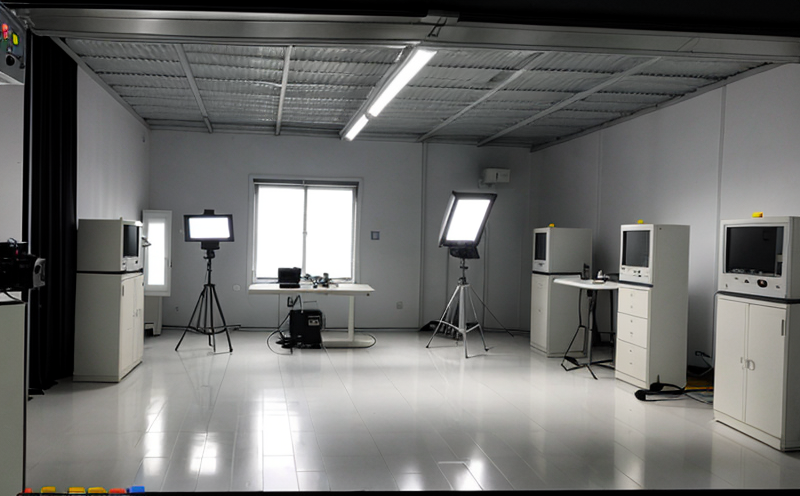ISO CIE 11664 Photometric Testing of Colour Appearance
The International Organization for Standardization (ISO) and the Commission Internationale de l'Éclairage (CIE) have established a suite of standards for photometric testing, which are crucial in ensuring accurate colour appearance measurement. ISO CIE 11664 specifically addresses the evaluation of colour appearance models used to describe how an object appears under given illumination conditions.
Photometric testing is essential across various sectors including lighting, textiles, automotive, and electronics. For instance, within the lighting sector, accurate photometric data is critical for manufacturers to ensure their products meet aesthetic expectations and regulatory requirements. This service ensures that light sources are evaluated according to internationally recognized standards, providing stakeholders with reliable data.
ISO CIE 11664 involves measuring the spectral power distribution (SPD) of a light source under defined illumination conditions. The SPD is then used in conjunction with colour appearance models like CIECAM02 or CIELAB to predict how the human eye perceives the colour of the light source. This process not only ensures compliance with international standards but also enhances product quality by providing precise and reproducible colour data.
Specimen preparation for this test is meticulous; it requires the creation of a controlled environment where the light source can be accurately measured under specified conditions. The specimen, which could be an LED bulb or any other luminous device, must be placed in a photometric booth designed to minimize external interference such as stray light. Once prepared, the specimen is subjected to rigorous testing using high-precision spectroradiometers and colourimeters.
The instrumentation used for this service includes advanced spectrophotometers capable of measuring both spectral power distributions and perceived colours. These instruments are calibrated regularly to ensure accuracy and reliability. The data collected during these tests is then processed using software that applies the relevant CIE colour appearance models, providing a comprehensive report on the colour performance of the specimen.
Compliance with ISO CIE 11664 standards is essential for manufacturers aiming to meet global market demands and regulatory requirements. By adhering to these standards, companies can ensure that their products are perceived consistently across different environments and lighting conditions, thus enhancing customer satisfaction and brand reputation.
The accuracy of photometric testing is paramount in industries where colour and light quality significantly impact product performance and user experience. For example, in the automotive industry, accurate photometric data ensures that interior lights meet both functional and aesthetic requirements. In retail environments, consistent lighting can influence customer perception and decision-making.
| Standard Code | Description |
|---|---|
| ISO 17651-3:2014 | Spectrophotometric and colorimetric test methods for textiles |
| IEC 61547-2:2013 | Luminaires - Part 2: Test Methods |
Applied Standards
The application of ISO CIE 11664 is supported by a robust suite of international standards that ensure comprehensive photometric testing. These include:
| Standard Code | Description |
|---|---|
| ASTM E2047-15 | Spectrophotometric test methods for textiles |
| CIE 15:2004 | Colorimetry - CIE 15:2004 |
Why Choose This Test
Selecting ISO CIE 11664 photometric testing offers numerous advantages. Firstly, it ensures that light sources are evaluated under consistent and controlled conditions, leading to more accurate and reliable colour appearance data. Secondly, this service supports compliance with global standards, which is crucial for international trade and market access.
Thirdly, the test enhances product quality by providing detailed insights into how a light source appears in various environments. This knowledge allows manufacturers to make informed decisions about design and production processes, ultimately leading to higher-quality products. Additionally, ISO CIE 11664 photometric testing can help identify potential issues early in the development process, reducing costly rework and delays.
The test also supports innovation by enabling companies to experiment with new materials and technologies while ensuring that they meet strict quality standards. This flexibility is particularly valuable in rapidly evolving industries where staying ahead of trends is critical for success.
Competitive Advantage and Market Impact
Earning the certification associated with ISO CIE 11664 photometric testing can significantly enhance a company's competitive position in the market. The ability to provide accurate, consistent, and compliant colour appearance data can set a business apart from its competitors.
Customers, particularly those in design and manufacturing sectors, value products that meet high-quality standards and are perceived consistently across different lighting conditions. By offering ISO CIE 11664-compliant photometric testing, companies can demonstrate their commitment to excellence and reliability, which can lead to increased customer trust and loyalty.
From a regulatory perspective, compliance with these standards ensures that products meet necessary legal requirements in various regions around the world. This can open up new market opportunities and facilitate smoother international trade. In summary, ISO CIE 11664 photometric testing is not just a technical service but also a strategic investment that supports long-term business growth and success.





